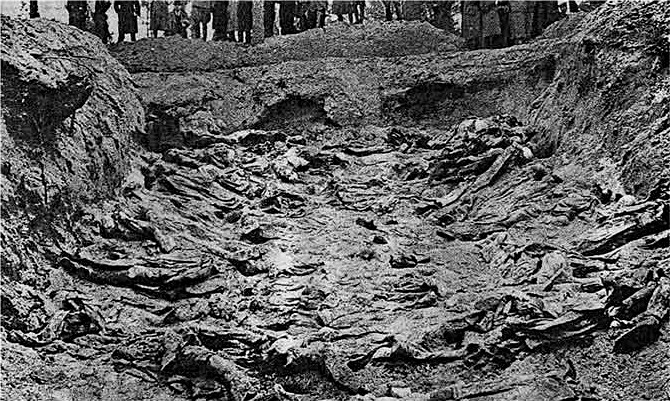Wednesday 3 April 1940
 |
| Homing pigeons being used by the RAF. |
Operation Weserubung: Some of the Norwegian ports are several days' sail, so the first Kriegsmarine ships participating in the operation sail today, 3 April 1940. Almost nobody is told the destination, they could be invading England for all the grunts know.
There are 11 task forces for the invasion, each directed at a different major city such as Oslo, Copenhagen and Trondheim. Two pocket battleships, 3 heavy and 4 light cruisers, 14 destroyers and 31 U-boats provide cover at sea, with constant Luftwaffe protection.
Colonel Hans Oster of the Abwehr, a key figure in the resistance, informs contacts in the Vatican and Holland about Operation Weserubung.
On the Allied side, there remains much sentiment for an Allied invasion of Norway. However, the inefficiencies of war by committee surface, as the French and British cannot agree on details or, in fact, a plan at all. Leaks to the British press also have given the public the impression that it is only the British who are interested in invading Norway, whereas there is no hint that the Germans have the same idea and are actually acting on it.
The Times, in one of those later-awkward editorials, proclaims "All Scandinavia breathes easier today" because the threat of Allied or German military intervention "is largely over."
European Air Operations: Six Junkers Ju 88s attack a convoy in the North Sea without doing damage. Sunderland flying boats intercept them and shoot one Junkers down, and forces a second to make a crash-landing in Norway, where the crew is interned.
The first Supermarine Spitfire is lost on home defense duties when it goes down while attacking a Heinkel He 111 off the Yorkshire coast. The Heinkel also crashes.
There are battles along the border in France.
Battle of the Atlantic: With U-boats pulled off normal patrols to support Operation Weserubung, there is little activity in the Battle of the Atlantic.
Polish submarine Orzeł, now part of Royal Navy's 2nd Submarine Flotilla, under the command of Vice-Admiral Max Horton, leaves Rosyth to take up station off Kristiansand.
Convoy OG 24 forms at Gibraltar.
RAF: The RAF turns to an age-old solution to inform base of information from reconnaissance planes without breaking radio silence: homing pigeons. The RAF has a fleet of 500,000 homing pigeons to carry messages back to the UK. The homing pigeons are amazingly reliable and can fly through all sorts of whether and deliver the mail, though at times it takes a few days.
British Government: Admiral of the Fleet Lord Chatfield, who is Minister for Co-ordination of Defense, resigns. A new committee headed by First Lord of the Admiralty Winston Churchill will be composed of Service Ministers. This Military Coordinating Committee will replace Chatfield's role. General Sir Hugh Elles is appointed National ARP (civil defense) Controller, while Lord Woolton officially becomes the first Minister of Food. In all, there are 11 ministerial changes.
The principal result of this re-shuffling is that Churchill's power expands to include control over some Army and Royal Air Force operations as well as just the Royal Navy - of which he retains complete control.
War Crimes: Pursuant to the Politburo order of 5 March 1940, the Soviet NKVD begins executing captured Polish officers in the Katyn Forest and other places such as the Kalinin and Kharkiv prisons.
Canada: Alexander Cambridge, Earl of Athlone, replaces the deceased Lord Tweedsmuir (John Buchan) to become the 16th Governor-General of Canada.
Luxembourg: The government provides all 300,000 residents with an evacuation plan in case of "emergency."
China: The Chinese capture Xishanzui (Hsishantzu) as they pursue the Japanese retreating from Wuyuan, thus ending the Second Battle of Wuyuan.
German Homefront: The Nazis discontinue old-age pensions first established by Bismarck, rationalizing that after final victory, the "plutocrats in Paris and London" will take care of that.
Future History: Some 22,000 victims of the Katyn Forest Massacre will be liquidated by the Soviets. Stalin retaliates against all who question that denial. This remains the status quo until 1990, when the USSR, in its last days, acknowledges the incident and the subsequent cover-up. In 2010, the Russian State Duma approved a declaration stating that Staling and the other members of the Politburo personally ordered the massacre. During the war and for decades afterward, however, it will remain a murky, confused issue full of denials and the assumption by many that only the Nazis committed mass murders during World War II.
 |
| A pit where the executed Polish officers were buried, as shown in 1943 after being discovered by the Germans. |
April 1940
April 1, 1940: Weserubung is a GoApril 2, 1940: British Subs On Alert
April 3, 1940: Churchill Consolidates Power
April 4, 1940: Missed the Bus
April 5, 1940: Mig-1 First Flight
April 6, 1940: Troops Sailing to Norway
April 7, 1940: Fleets At Sea
April 8, 1940: HMS Glowworm and Admiral Hipper
April 9, 1940: Invasion of Norway
April 10, 1940: First Battle of Narvik
April 11, 1940: Britain Takes the Faroes
April 12, 1940: Germans Consolidate in Norway
April 13, 1940: 2d Battle of Narvik
April 14, 1940: Battle of Dombås
April 15, 1940: British in Norway
April 16, 1940: Germans Cut Norway in Half
April 17, 1940: Trondheim the Target
April 18, 1940: Norway Declares War
April 19, 1940: Dombås Battle Ends
April 20, 1940: Germans Advancing in Norway
April 21, 1940: First US Military Casualty
April 22, 1940: First British Military Contact with Germans
April 23, 1940: British Retreating in Norway
April 24, 1940: British Bombard Narvik
April 25, 1940: Norwegian Air Battles
April 26, 1940: Norwegian Gold
April 27, 1940: Allies to Evacuate Norway
April 28, 1940: Prepared Piano
April 29, 1940: British at Bodo
April 30, 1940: Clacton-on-Sea Heinkel
2016
No comments:
Post a Comment